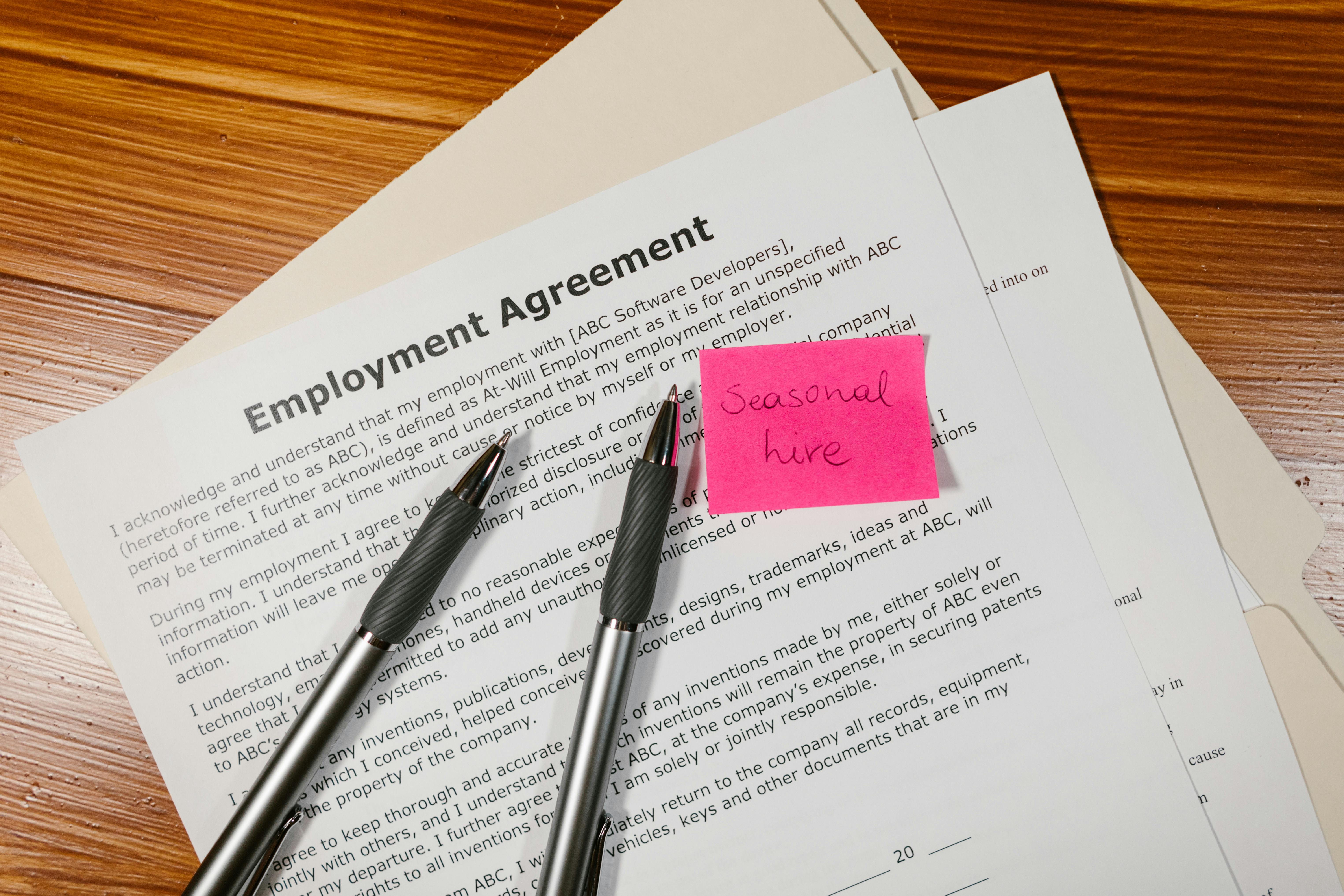How Do Staffing Agencies Work?

September 3, 2025

Staffing agencies find the best candidates for open positions at companies. The positions can be temporary, contract, temp-to-hire, or permanent with part-time or full-time hours. Staffing agencies save employers time and money by handling all recruiting tasks and making quality matches. They can quickly fill openings from their pre-qualified talent pool or find new candidates for specialized positions.
Depending on their expertise, staffing agencies may focus on specific industries or operate across multiple sectors. According to the American Staffing Association, the percentages of staffing employees by sector are: 36% industrial, 24% office (clerical and administrative), 21% professional and managerial, 11% engineering and IT, and 8% health care. Global Group reports that in 2026, the Americas will see a 4% growth in the staffing industry with a market size of $226.6 billion.
What Do Staffing Agencies Do?
Staffing agencies help employers fill open positions with qualified talent in specific industries, while helping workers to find jobs. The streamlined hiring process is mutually beneficial for workers and employers. The matches made by the agency save time and reduce stress. Staffing agencies follow these steps to fill open positions.
- Employer contacts the agency: For open roles, the employer shares the job description, qualifications, experience, pay range, work hours and how long the position will last.
- Find high-quality candidates: Staffing agencies may fill the positions with candidates already in their talent pool. Or, they will use various methods to find new talent, including advertising, networking, updating openings on their website, and posting on job boards and social media.
- Conduct interviews and screening tests: Recruiters at staffing agencies will interview qualified applicants. They may also administer screening tests. If desired, the employer may also interview the top candidates or just meet with the chosen candidate.
- Perform background checks: Background checks, vetting and reference checks are performed by staffing agencies.
- Fill open positions with workers: Temporary, contract or permanent roles will be filled with the candidate that best matches the position. The employer may make the final decision.
- Handle all paperwork and payment: Staffing agencies handle all employment contracts, taxes and payroll. Employees are paid by the staffing agency unless the employer permanently hires them.
How Do Staffing Agencies Work for Employers?
After finding the staffing agency that you want to work with, contact them to discuss your needs. Share all the details about your current openings, as well as how frequently you plan to partner with them for future openings. Staffing agencies can help you determine employee pay ranges based on similar positions in your area.
The staffing agency will draft a service agreement. If it is a good fit and you are happy with the terms, sign the contract. Then, the agency will start sourcing candidates to fill your open positions. Employers can choose to interview candidates provided by the agency.
What Are the Costs of Using a Staffing Agency?
Staffing agencies have varying pricing models. Agencies may request deposits. A common pricing model is to charge an employer a markup on the worker’s hourly rate. The markup covers many of the expenses that staffing agencies incur, including administrative, insurance, recruiting and payroll taxes. The markup may be higher for short-term positions and lower for long-term contractors. Difficulty in filling higher-level positions may raise prices, while an ongoing relationship may reduce the cost.
According to Expert Technical Staffing, “they typically charge anywhere from 15% to 30% of first-year base salary for direct-hire employee placements or a markup of 40% to 45% over the hourly rate of a contractor.” Highly specialized roles have markups of 25-30% while support roles have a markup of 15-20%.
Legal Considerations for Staffing Agencies
The U.S. Chamber of Commerce states that “typically, temporary staff members work under 1,000 hours or one year for your company.” Workers are W-2 employees of the staffing agency unless hired permanently by the employer.
The staffing agency is responsible for human resources and legal compliance with employment laws. The employer and staffing agency are considered a co-employment relationship, meaning both have responsibilities for the employees. The employer and staffing agency are jointly responsible for protecting temporary workers and meeting the requirements of the Occupational Safety and Health Act of 1970. Staffing agencies cannot discriminate against employees or in their referrals.
“An employment agency, such as a temporary staffing agency or a recruitment company, is covered by the laws we enforce if the agency regularly refers employees to employers. This is true even if the employment agency does not receive payment for this service, and the agency is covered no matter how many employees it has.” – EEOC
View the legal quick facts from the American Staffing Association to see answers ranging from co-employment to work eligibility status.
Staffing Agencies Versus Other Agencies
Staffing agencies, also known as employment agencies or staffing firms, fill temporary, contract and permanent positions, which is different from a temp agency. Quickly filling short-term, temporary positions is the main focus of a temporary agency. Recruitment agencies focus on recruiting for permanent positions. Executive search agencies, also known as headhunters, focus on finding talent to fill high-level specialized roles, including the C-suite.
Pros of Using a Staffing Agency
Employers experience several benefits when using a staffing agency to fill positions. Staffing agencies can help employers overcome the challenge of quickly finding qualified talent, especially with ready access to their pre-qualified talent pools. A LinkedIn article shared that it takes 100 person-hours to hire someone, starting from the job description to the first day of employment. The length of time to fill open positions varies, but it can take up to 60 days.
Staffing agencies provide flexible options, access to specialized talent, and assistance with human resources. Small businesses and startups may not have the recruiting resources for hiring, making staffing agencies a smart choice.
Cons of Using a Staffing Agency
While the goal is to partner with a reliable staffing agency that will deliver candidates that are a good match, staffing agencies may fail to deliver matches. Furthermore, placements may not be a good fit since it is harder for people outside the company to fully understand your company culture and internal communication. Other disadvantages include markup costs, employers having less control over the hiring process, and the initial time it takes to set up a relationship with a staffing agency.
How To Find a Staffing Agency
It takes time and research to find the best staffing agency for your needs. Once an ongoing relationship is established, employers will experience more benefits and possibly lower costs. Use these steps to find a staffing agency.
- Determine your needs: List the details of your current open positions, and plan now for future openings. Identify the types of roles, how long the positions will last, and the specialized skills necessary to fill them.
- Research agencies: Start by using the American Staffing Agency (AMA) member search to find agencies near you and refine the search by categories. Once you have the broad list, start narrowing it down by looking at the company websites to determine which ones match your industry and roles. Read reviews online, and seek recommendations from your network and industry peers.
- Review agencies: Evaluate which agencies have the appropriate credentials and licensing. Check their state licensing and profile on the Better Business Bureau (BBB). Look for a proven track record in your industry over a lengthy period and a strong online reputation with positive testimonials and reviews without red flags.
- Conduct interviews: This is your chance to get all your questions answered and ask for references to check. From costs and success rates to how long it takes to fill positions, ask everything that you need to make an informed decision about the agency.
- Check references: Have a conversation with each reference to see what worked well and what could have been improved. Find out how the agency resolved any problems and how successful they were at filling positions.
- Review and sign contract: Review the terms of the contract, request changes and sign the contract when you are ready.
Take a look at our news on Human Resources

 by Sandra Robins
by Sandra Robins

 by Sandra Robins
by Sandra Robins

 by Sandra Robins
by Sandra Robins

 by Sandra Robins
by Sandra Robins

 by Sandra Robins
by Sandra Robins

 by Shanel Pouatcha
by Shanel Pouatcha

 by Sandra Robins
by Sandra Robins

 by Sandra Robins
by Sandra Robins

 by Sandra Robins
by Sandra Robins

 by Sandra Robins
by Sandra Robins

 by Sandra Robins
by Sandra Robins

 by Sandra Robins
by Sandra Robins